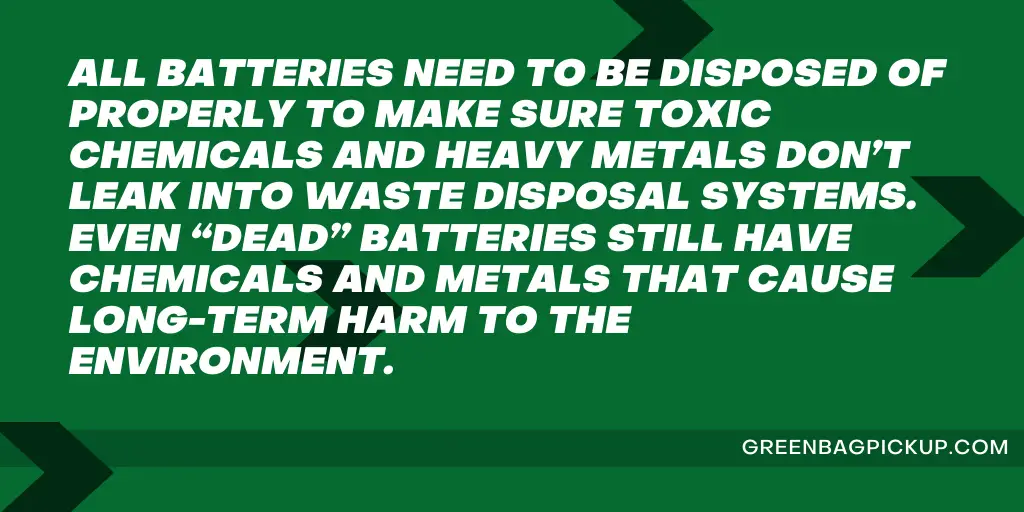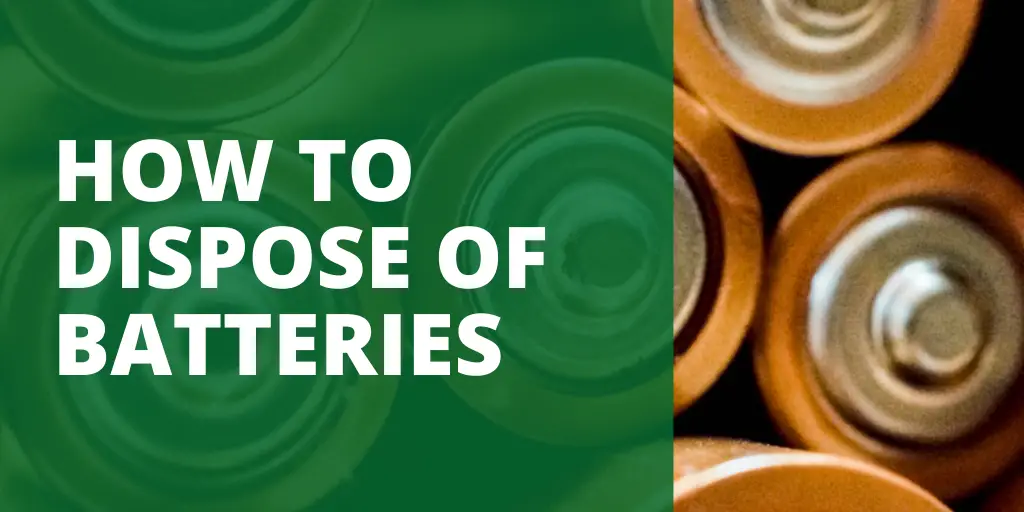One of the most common power sources in our home, batteries are used to power everything from laptops and cellphones to watches and children’s toys. There are tons of different battery types and eventually, they wear out and require replacing. We’ll guide you through how to properly dispose of batteries and how to figure out if they’re recyclable.
Single-Use & Rechargeable Batteries
The difference between single-use and rechargeable batteries. Single-use batteries are only able to hold a charge once and are disposable once they run out of power. Rechargeable batteries are able to be used many times until they can no longer run as effectively.

All batteries need to be disposed of properly to make sure toxic chemicals and heavy metals don’t leak into waste disposal systems. Even “dead” batteries still have chemicals and metals that cause long-term harm to the environment.
WikiHow explains what to do with your single-charge alkaline batteries:
“Alkaline batteries are the type that power most simple battery-operated devices, such as flashlights, toys, remote controls, or smoke alarms. They come in a variety of sizes, ranging from AAA to 9 volt. Proper disposal methods for alkaline batteries may depend on your local waste regulations.”
Can Batteries Be Recycled?
There are alternatives to single-use batteries, like rechargeable batteries. Lots of small electronics are also being reinvented in a solar power form. The fortunate thing is many batteries are recyclable.
In Canada, many municipalities and local businesses run battery and electronic recycling programs. Make sure to check your local area for where to recycle batteries.
Battery manufacturer Energizer says it’s easier to recycle batteries in the last few decades:
“By some counts, Americans buy nearly 180 tons of batteries each year – a nationwide recycling strategy is wise and responsible. Fortunately, alkaline batteries haven’t contained harmful materials for over 25 years, and the U.S. passed a law in 1996 phasing out the use of mercury in batteries, so progress has been made. In fact, unless you live in California, you’ve been tossing non-rechargeable batteries safely in the trash for at least 19 years. Truth is, consumers are looking for alternatives – and today there are options.”
How to Properly Dispose Batteries
Batteries can be easily recycled at local businesses in your area. If you’re unable to recycle batteries, make sure to follow the manufacturer’s steps to disposing of it properly in the garbage.
If your batteries are lithium or greater than 9 volts, put electrical tape or masking tape on the battery terminals. This will make sure that harmful metals will not be leaked out and endanger the environment or any animals and humans.
It’s recommended to not put your batteries into bulk trash and to be taken to special collection sites where possible.
Hardware store The Home Depot outlines why recycling batteries is important:
“Rechargeable batteries must be recycled but you should try and recycle all batteries. Some batteries like NiCad ones have toxic metals such as cadmium and lead. Recycling makes sure the components of all batteries are handled properly and don’t end up in streams and landfills.”
Making small changes on disposing of batteries properly can help waste disposal services – and the environment – in the long run.
Contact us to see what waste disposal services we can offer you.

